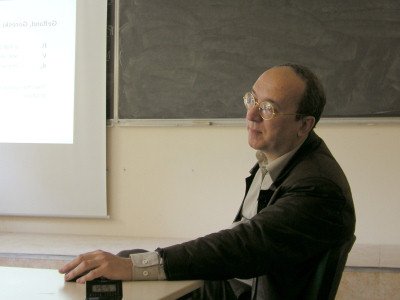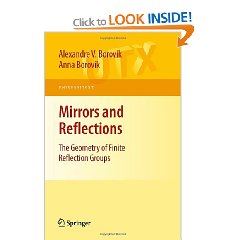Teaching Experience
My 45+ years of teaching covered four countries with four different
education systems. I taught, here and in previous employment,
- graduate/postgraduate level courses in Model Theory,
Multilinear Algebra, Symmetric Spaces, Linear Algebraic
Groups, Classical Groups;
- undergraduate courses in Calculus, Advanced Calculus,
Analysis and Measure Theory, Differential Equations, Linear
Algebra, Probability and Statistics, Analytic Geometry with
Tensor Analysis, Number Theory, Number Theory and
Cryptography, Logic, Recursion Theory, Discrete Mathematics,
Group Theory, Coding Theory, Reflection Groups, Mathematical
Education; and
- preparatory (foundation) courses in Euclidean geometry,
elementary algebra, basic set theory and elementary logic,
precalculus.
Besides teaching mainstream university courses and supervising MSc
and PhD theses in mathematics, I have experience of working at
every level of secondary and higher education: I supervised MSc
dissertations in mathematical education and university students'
work placements as trainee teachers in secondary schools, taught
evening classes for mature part time university students and
foundation programme courses for fresh school leavers, worked in a
mathematics correpondence school and as a night warden in a
boarding school. Also, I taught CAL-based mathematics courses as
early as in 1995, when the abrreviation CAL (for Computer Assisted
Learning) has not been invented yet.
My Teaching Manifesto
- Teaching is not a science, it is an art, and should be
treated as such.
- Students are not customers (“persons who buy”) – they are
clients (“persons who seek the advice of a professional man or
woman”).
- “Good learning experience” means mastering something new and
advanced. To help his/her students, a university teacher has
to be able to transform and restructure highly complex
material from his/her subject area into a form suitable and
accessible to the learners.
- This cannot be achieved without teachers being experts in
their disciplines.
- Successful and inspirational teaching is a highly individual
skill. The choice of teaching methods should reflect not only
specifics of the target audience, but also the experience,
teaching philosophy and individual psychophysiological
characteristics of the teacher.
- Structuring of the learning environment, choice of teaching
and assessment methods have to be subject specific.
- Values, standards, criteria of assessment in learning and
teaching have to originate in, and be set by, the professional
academic communities of their particular subject areas.
- The role of managers is to create an environment which helps
professional standards to be maintained; however, managers
should not interfere in setting the standard.


